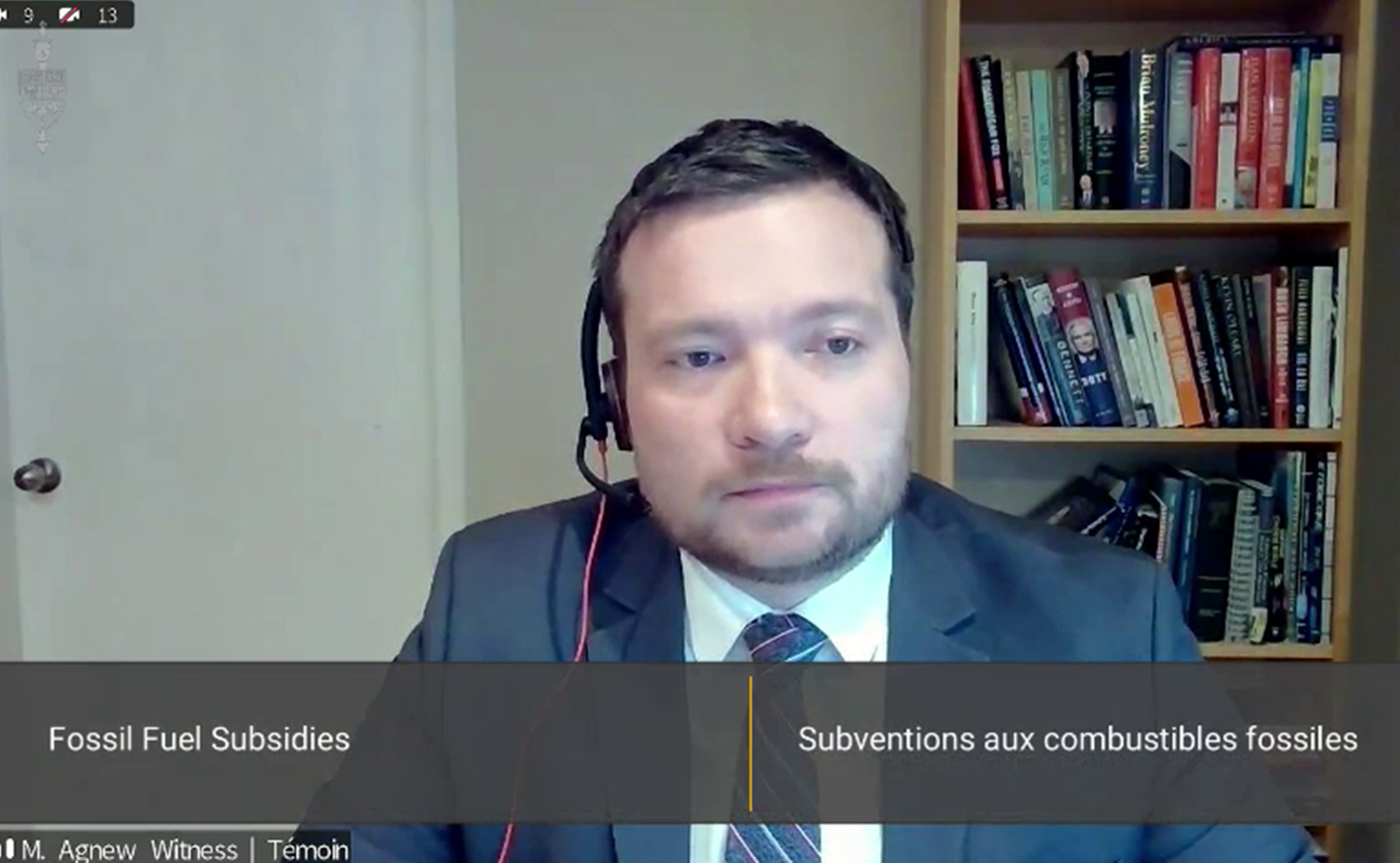Blog /
Canadian Chamber urges MPs on Environment Committee to approach fossil fuel subsidy question thoughtfully
Canadian Chamber urges MPs on Environment Committee to approach fossil fuel subsidy question thoughtfully
On March 29, 2022 Mark Agnew, Canadian Chamber Senior Vice President, Policy and Government Relations, appeared at the House of...

On March 29, 2022 Mark Agnew, Canadian Chamber Senior Vice President, Policy and Government Relations, appeared at the House of Commons Standing Committee on Environment and Sustainable Development. His appearance was to contribute to the Committee’s study of fossil fuel subsidies. Agnew made clear that substantial investments are necessary to facilitate Canada’s transition to net-zero and that a binary approach to subsidies may inadvertently make Canada’s decarbonisation efforts more difficult.
Mark Agnew’s Opening remarks:
Check against delivery
Chair and Honourable members, thank you for the invitation to participate in the Committee’s study on fossil fuel subsidies. As Canada’s largest business organization, with member companies of all sizes in all sectors and regions of the country, the Chamber welcomes Parliamentarians interest in this critical issue.
The G7 and G20’s voluminous communiques regularly reference eliminating fossil fuel subsidies. It makes for a great soundbite but nuance has unfortunately been lost.
Oil and gas plays a critical part in both Canada’s pathway to net zero since without reliable supply there will not be the political conditions for a decarbonisation push. Additionally, we need to have an approach to fossil fuel subsidies that recognizes the regional dynamics in our country.
I mentioned earlier the need for nuance. I want to briefly unpack that with three examples that all feed into the simple point that immense capital investment is needed in the transition to net zero.
First is carbon capture, utilization and storage. CCUS plays a critical role in our net zero transition, especially when looking at the 2030 time horizon. Industry is stepping up in a big way and we are seeing collaborative initiatives such as the Oilsands Pathway to Net Zero alliance. CCUS is a prime example of what some would see as a quote-unquote fossil fuel subsidy to industry. Yet, CCUS is not cheap and without this tax credit there is no credible pathway to net zero.
Second is the Net Zero Accelerator Initiative. We welcomed the government launching this fund, which has the potential to play a vital role de-risking the deployment of new technologies by oil and gas companies in both their traditional and new business lines. Again, some would peg support to an oil and gas company as a so-called fossil subsidy, but cutting off oil and gas companies will make our transition to net zero that much more difficult.
The third example are multi-sector tax measures such as capital cost allowances. The Canadian tax code is already complex enough. Blocking certain sectors from accessing these types of tax credits would only serve to complicate – and distort – the tax code and make capital deployment more difficult.
As I said at the outset, I hope honourable members will understand fossil fuel subsidies are not a binary issue. Phase outs make a good soundbite but we urge careful deliberation to ensure our net zero transition is not inadvertently made more difficult.
Related News

Time to put reports into action, Chamber tells House Agriculture Committee

2022 Q3 Canadian Survey on Business Conditions: Inflation is the top issue. Labour pains intensifying, but price pressures and supply chains issues are improving




